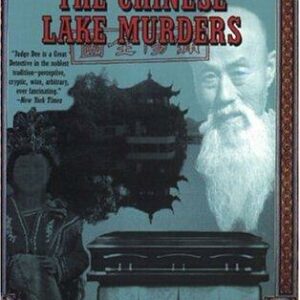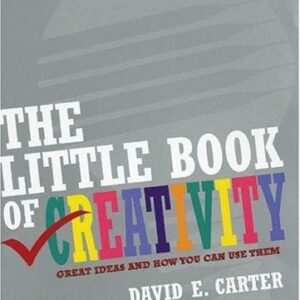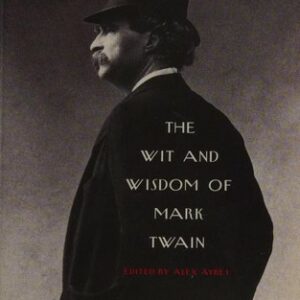My Ántonia
$11.00
| Title | Range | Discount |
|---|---|---|
| Trade Discount | 5 + | 25% |
- Description
- Additional information
Description
Willa Cather’s My Ántonia is considered one of the most significant American novels of the twentieth century. Set during the great migration west to settle the plains of the North American continent, the narrative follows Antonia Shimerda, a pioneer who comes to Nebraska as a child and grows with the country, inspiring a childhood friend, Jim Burden, to write her life story. The novel is important both for its literary aesthetic and as a portrayal of important aspects of American social ideals and history, particularly the centrality of migration to American culture.
For more than seventy years, Penguin has been the leading publisher of classic literature in the English-speaking world. With more than 1,700 titles, Penguin Classics represents a global bookshelf of the best works throughout history and across genres and disciplines. Readers trust the series to provide authoritative texts enhanced by introductions and notes by distinguished scholars and contemporary authors, as well as up-to-date translations by award-winning translators. “A book for our times . . . My Ántonia becomes an education in what it means to be American: to have come from elsewhere, with very little; to be mindful, amid every trapping of prosperity, of how little we once had, and were; to protect and nurture those newly arrived, wherever from, as if they were our own immigrant ancestors—equally scared, equally humble, and equally determined. . . . To read My Ántonia more than a century after its publication is a reminder of the timelessness of America’s bigotries. . . . But, more powerfully, Cather’s novel is a story of a country that can overcome prejudice.” —Bret Stephens, The New York Times
“No romantic novel ever written in America, by man or woman, is one half so beautiful as My Ántonia.” —H. L. Mencken “The time will come when Willa Cather will be ranked above Hemingway.” —Leon Edel
Willa Cather (1873-1947) was born in Virginia and raised on a Nebraska ranch. She is known for her beautifully evocative short stories and novels about the American West. Cather became the managing editor for McClure’s Magazine in 1906 and lived for forty years in New York City with her companion Edith Lewis. In 1922 Cather won the Pulitzer Prize for One of Ours, the story of a Western boy in World War I. In 1933 she was awarded the Prix Femina Americaine “for distinguished literary accomplishments.”
John J. Murphy (1898-1981) was a prolific and widely admired New Thought minister and writer, best known for his motivational classic, The Power of Your Subconscious Mind, an international bestseller since it first blazed onto the self-help scene. His pamphlet How to Attract Money first appeared in 1955, and likewise entered many editions. Murphy wrote widely on the auto-suggestive and metaphysical faculties of the human mind and is considered one of the pioneering voices of affirmative-thinking philosophy.
INTRODUCTIONIn part an elegy for a way of life almost vanished at the time of its writing, Willa Cather’s novel My Ántonia is also an inquiry into what it means to be an American. Cather explores characteristically American questions of identity through the novel’s central relationship, the friendship between transplanted Virginian Jim Burden and Bohemian immigrant Ántonia Shimerda. The novel begins with an introduction by an unnamed narrator, a woman who grew up in Nebraska with Jim and Ántonia. This introduction emphasizes the themes that shape the novel—movement, discontinuous identity, and romantic hopefulness. The narrator unexpectedly meets the adult Jim Burden on a train crossing Iowa, and the two renew their acquaintance and reminisce about Ántonia, who represents for both of them “the country, the conditions, the whole adventure of our childhood” (p. 5). At the narrator’s suggestion, Jim agrees to write a portrait of Ántonia. As he describes it, Jim’s portrait is impulsive, written without notes and without “any form” (p. 6). It is the spontaneous overflow of Jim’s recollected emotion, in keeping with his “naturally romantic and ardent disposition” (p. 4). Before giving the manuscript to the narrator, Jim titles it “Ántonia”; after frowning a moment, he adds “my.” The narrator notes that this “seemed to satisfy him,” without suggesting whether Jim’s title is a gesture of possessiveness, an acknowledgment of bias, or indicative of some other meaning (p. 6).
Jim begins his story, at age ten, with his first hearing of Ántonia on what seems to him “an interminable journey across the great midland plain of North America” (p. 9). The recently orphaned Jim, who is going to live with his grandparents, feels that “there was nothing but land: not a country at all, but the material out of which countries are made” (p. 12). Jim and Ántonia, passengers on the same train, are each challenged to feel at home in this land that initially produces the feeling of being “erased, blotted out” (p. 13).
It is Jim’s friendship with Ántonia that enables him to feel at home on the prairie farm. Mr. Shimerda’s plea to Jim to “Te-e-ach, te-e-ach my Ántonia!” gives Jim a purpose and a sense of competence (p. 26). His relationship with “Tony” and the adventures they share become the most important part of his life. What makes people who they are is one of the mysteriesMy Ántonia plumbs. To what extent is personality born, and to what extent made? Cather suggests that Jim is shaped by his early friendship with Ántonia, and also that he is drawn to her because they are fundamentally alike. Jim shares Ántonia’s love for her father, who comes to represent the culture and sensitivity that life on the prairie tends to crush. Like Mr. Shimerda and Mrs. Steavens, Jim recognizes that Ántonia is special and refers to her as “my Ántonia” (p. 171). Ántonia becomes a touchstone in the novel: other characters reveal themselves through their responses to her. Those who are generous and compassionate—Jim’s grandparents, Mrs. Harling, and the Widow Steavens—love and try to defend her. Those who are selfish and corrupt—Ambrosch, Wick Cutter, and Larry Donovan—seek to take advantage of her.
Although she is in this respect the novel’s still center, Ántonia is also an image of American freedom and mobility, as evidenced by her choosing to become a “hired girl” at the Harlings, and then by her leaving the Harlings when they object to her going dancing. Ántonia’s romance with Larry Donovan points up both Donovan’s corruption—he is happy to use and abandon her, as a lower-class immigrant girl—and Ántonia’s idealism. Her subsequent embrace of motherhood and farming highlights her vibrant and indomitable nature, the nature that Jim has always felt sets apart the Bohemian “hired girls” from the town girls. When Jim finds her again, she is married to a fellow countryman and has so many children that Jim is made “dizzy” by the sight of them (p. 252). He sees Ántonia’s return to farming as a return to a world of timeless realities that has escaped the corruption he associates with small-town life. Her life stands in implicit contrast to Jim’s own, which includes a childless marriage to a brittle socialite.
The past that Jim recalls so passionately is not only his own past, but also the past of the West. When we meet him in the introduction, he is working for the railroads that are transforming the West; the industrialized nation is encroaching on the agrarian world of Jim’s childhood. Cather suggests that Jim is looking back with longing on a time when the entire country (and he as well) was more innocent and hopeful. The novel’s epigram from Virgil’s Georgics, “Optima dies prima fugit,” is translated by Jim as, “in the lives of mortals, the best days are the first to flee” (p. 199). Each of Jim’s moves, after the first move to Nebraska, entails a loss—from the farm to Black Hawk, from Black Hawk to college, from college to work and a wife who does not share his past or his passion. Cather depicts a man who is eager to move away and contend with the larger world, but then spends his emotional energy attempting to recapture the past. Jim describes some memories as “realities” that are “better than anything that can ever happen to one again” (p. 245). The book ends with him going back over the road he and Ántonia traveled the night they first saw each other, giving him a sense of “what a little circle man’s experience is” (p. 273). Is Jim’s absorption in his childhood memories more a flight from adult disappointments or a valid recognition that those early days were more vital and meaningful? This deeply American novel, which engages the ideas of upward mobility and remaking identity, asks whether we can—or should—ever leave the past behind.
ABOUT WILLA CATHERWilla Cather was born near Winchester, Virginia, in 1873. When she was nine, her family moved to Nebraska to join her paternal grandparents and uncle. Cather was profoundly affected by moving from the settled Virginia landscape to the untamed Nebraska prairie. On the farm, her neighbors included immigrants from Bohemia (now most of the Czech Republic), Sweden, Norway, and Denmark. Their pioneering lives and stories of the old country were among her strongest influences.
Taught at home by her grandmothers, Cather read Latin and the English classics. In later life, she cited Virgil as her first literary influence. While she was a schoolgirl, Cather’s family moved to the town of Red Cloud, the model for Black Hawk in My Ántonia, and she attended high school there. She worked her way through the University of Nebraska, planning to study medicine until a professor secretly submitted one of her essays to the Nebraska State Journal. Seeing her work in print convinced her to become a writer. After graduating, she worked for Pittsburgh’s Daily Leader and taught high school English. In 1905, she published a collection of short stories, and favorable reviews inspired her to move with her companion Isabelle McClung to New York City, where she became managing editor of McClure’s Magazine.
In 1912, Cather left McClure’s and published her first novel, Alexander’s Bridge, responding to author Sarah Orne Jewett’s urging that she make time to fulfill her creative gifts. With her novel O Pioneers! (1913), set on the Nebraska frontier, Cather achieved artistic and critical success as a novelist. In 1916, Isabelle McClung announced her intention to marry, and Cather visited Nebraska in an effort to regain her emotional equilibrium and artistic inspiration. There she renewed her friendship with Annie Sadilek Pavelka, the inspiration for Ántonia. My Ántonia, generally regarded as Cather’s masterpiece, was published in 1918.
Cather’s simple yet lyrical style and uniquely American subject matter led critics to recognize her as a major author during her lifetime. A Lost Lady (1923), The Professor’s House (1925), Death Comes for the Archbishop (1927), and Sapphira and the Slave Girl (1940) are among her most acclaimed books, as well as One of Ours (1922), which won the Pulitzer Prize. She was living with her companion Edith Lewis in New York City when she died on April 24, 1947.
DISCUSSION QUESTIONSWhy is getting “a picture” of Ántonia important enough to Jim and the narrator of the introduction that they decide to write about her? (p. 5)
When Jim and Ántonia meet as children, why do they become such close friends?
Why does Pavel’s story about the wolves and the wedding party affect Jim and Ántonia so deeply?
Who or what does Cather intend us to see as responsible for Mr. Shimerda’s suicide?
Why does Cather repeatedly include images of people and objects silhouetted against the sun? What does the vision of the plough mean to Jim?
Why does Jim prefer “the hired girls” to the Black Hawk girls? Is Frances right when she says that Jim puts “a kind of glamour” over the hired girls? (p. 175)
What is Cather suggesting about gender roles with the characters Frances, Ántonia, and Lena?
Why is Ántonia so determined to keep going to the dancing tent that she would rather leave her job with the Harlings than stop dancing?
Why does the incident at Wick Cutter’s house make Jim feel that he never wants to see Ántonia again and that he hated her almost as much as he hated Cutter?
Why does Jim leave Lena Lingard in the end, despite how much he enjoys being with her?
Why does Jim tell Ántonia, “I’d have liked to have you for a sweetheart, or a wife, or my mother or my sister—anything that a woman can be to a man”? (p. 240)
What does Jim mean when he says that “Cuzak had been made the instrument of Ántonia’s special mission” (p. 270)? What is her mission?
Why is remembering the past so important to Jim? Why does he agree with Virgil that “optima dies prima fugit”? (p. 199)
FOR FURTHER REFLECTIONHow have immigrants enriched American culture? How have they been transformed by it?
Would you agree with Virgil and Jim that the earliest days are the best and the most quickly gone?
Do you agree that happiness consists of being “dissolved into something complete and great” (p. 20)?
RELATED TITLESEllen Glasgow, Barren Ground (1925)
Dissatisfied with the role ordained for Southern ladies, Dorinda Oakley has a premarital affair. Its disastrous outcome leads her to direct her passions into farming and transforming the land.
Sarah Orne Jewett, The Country of the Pointed Firs (1896)
Jewett’s sketches and tales of life in a rural Maine community lyrically depict the pleasures of living close to nature. Cather considered it a classic of the same rank as The Adventures of Huckleberry Finn and The Scarlet Letter.
Sinclair Lewis, Main Street (1920)
Lewis indicts the insularity and priggishness of American small-town life through the tale of Carol Kennicott, a doctor’s wife who struggles to bring an appreciation of culture to the citizens of Gopher Prairie.
Carson McCullers, The Heart Is a Lonely Hunter (1940)
Mick Kelly, a tomboy alienated from the Southern society around her, seeks out and listens to those who are similarly outcast, including a black doctor, a Jew, a socialist reformer, and a deaf man.
Virgil, Georgics (37-30 BCE)
A treatise on agriculture in poetic form, the Georgics contains as much philosophy as practical advice about farming. Virgil projects the return of peace and harmonious life on the land after the Roman civil wars have ended.
Chapter One
I first heard of Ántonia on what seemed to me an interminable journey across the great midland plain of North America. I was ten years old then; I had lost both my father and mother within a year, and my Virginia relatives were sending me out to my grandparents, who lived in Nebraska. I travelled in the care of a mountain boy, Jake Marpole, one of the ‘hands’ on my father’s old farm under the Blue Ridge, who was now going West to work for my grandfather. Jake’s experience of the world was not much wider than mine. He had never been in a railway train until the morning when we set out together to try our fortunes in a new world.
We went all the way in day-coaches, becoming more sticky and grimy with each stage of the journey. Jake bought everything the newsboys offered him: candy, oranges, brass collar buttons, a watch-charm, and for me a Life of Jesse James, which I remember as one of the most satisfactory books I have ever read. Beyond Chicago we were under the protection of a friendly passenger conductor, who knew all about the country to which we were going and gave us a great deal of advice in exchange for our confidence. He seemed to us an experienced and worldly man who had been almost everywhere; in his conversation he threw out lightly the names of distant states and cities. He wore the rings and pins and badges of different fraternal orders to which he belonged. Even his cuff-buttons were engraved with hieroglyphics, and he was more inscribed than an Egyptian obelisk.
Once when he sat down to chat, he told us that in the immigrant car ahead there was a family from ‘ across the water’ whose destination was the sameas ours.
‘They can’t any of them speak English, except one little girl, and all she can say is “We go Black Hawk, Nebraska.” She’s not much older than you, twelve or thirteen, maybe, and she’s as bright as a new dollar. Don’t you want to go ahead and see her, Jimmy? She’s got the pretty brown eyes, too!’
This last remark made me bashful, and I shook my head and settled down to ‘Jesse James.’ Jake nodded at me approvingly and said you were likely to get diseases from foreigners.
I do not remember crossing the Missouri River, or anything about the long day’s journey through Nebraska. Probably by that time I had crossed so many rivers that I was dull to them. The only thing very noticeable about Nebraska was that it was still, all day long, Nebraska.
I had been sleeping, curled up in a red plush seat, for a long while when we reached Black Hawk. Jake roused me and took me by the hand. We stumbled down from the train to a wooden siding, where men were running about with lanterns. I couldn’t see any town, or even distant lights; we were surrounded by utter darkness. The engine was panting heavily after its long run. In the red glow from the fire-box, a group of people stood huddled together on the platform) encumbered by bundles and boxes. I knew this must be the immigrant family the conductor had told us about. The woman wore a fringed shawl tied over her head, and she carried a little tin trunk in her arms, hugging it as if it were a baby. There was an old man, tall and stooped. Two half-grown boys and a girl stood holding oilcloth bundles, and a little girl clung to her mother’s skirts. Presently a man with a lantern approached them and began to talk, shouting and exclaiming. I pricked up my ears, for it was positively the first time I had ever heard a foreign tongue.
Another lantern came along. A bantering voice called out: ‘Hello, are you Mr. Burden’s folks? If you are, it’s me you’re looking for. I’m Otto Fuchs. I’m Mr. Burden’s hired man, and I’m to drive you out. Hello, Jimmy, ain’tyou scared to come so far west?’
I looked up with interest at the new face in the lantern-light. He might have stepped out of the pages of Jesse James. He wore a sombrero hat, with a wide leather band and a bright buckle, and the ends of his moustache were twisted up stiffly, like little horns. He looked lively and ferocious, I thought, and as if he had a history. A long scar ran across one cheek and drew the corner of his mouth up in a sinister curl. The top of his left ear was gone, and his skin was brown as an Indian’s. Surely this was the face of a desperado. As he walked about the platform in his highheeled boots, looking for our trunks, I saw that he was a rather slight man, quick and wiry, and light on his feet. He told us we had a long night drive ahead of us, and had better be on the hike. He led us to a hitching-bar where two farm-wagons were tied, and 1 saw the foreign family crowding into one of them. The other was for us. Jake got on the front seat with Otto Fuchs, and I rode on the straw in the bottom of the wagon-box, covered up with a buffalo hide. The immigrants rumbled off into the empty darkness, and we followed them.
I tried to go to sleep, but the jolting made me bite my tongue, and I soon began to ache all over. When the straw settled down, I had a hard bed. Cautiously I slipped from under the buffalo hide, got up on my knees and peered over the side of the wagon.
US
Additional information
| Weight | 7.4 oz |
|---|---|
| Dimensions | 0.6000 × 5.0800 × 7.7200 in |
| ISBN-13 | |
| Imprint | |
| Format | |
| Author | |
| Audience | |
| BISAC | |
| Subjects | historical novels, literary fiction, historical romance, alternate history, american literature, classic literature, classic books, fiction books, books fiction, historical fiction, historical fiction books, realistic fiction books, classics books, classic books for adults, classic books for teens, classic fiction, books historical fiction, historical fiction novels, fiction, historical, marriage, relationships, family, classic, school, romance, love, Literature, classics, Friendship, FIC019000, novels, FIC014000, classic novels, short stories |












